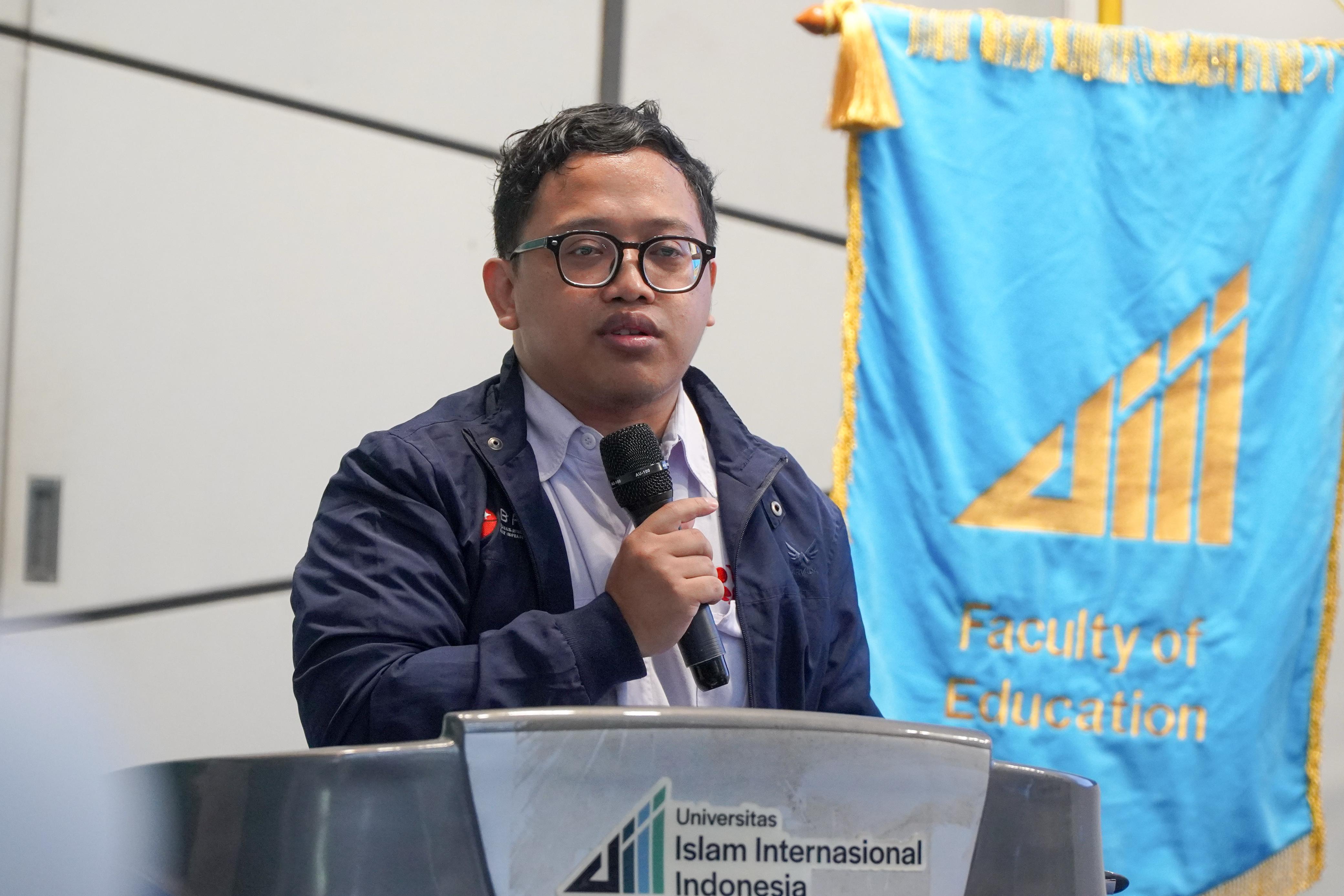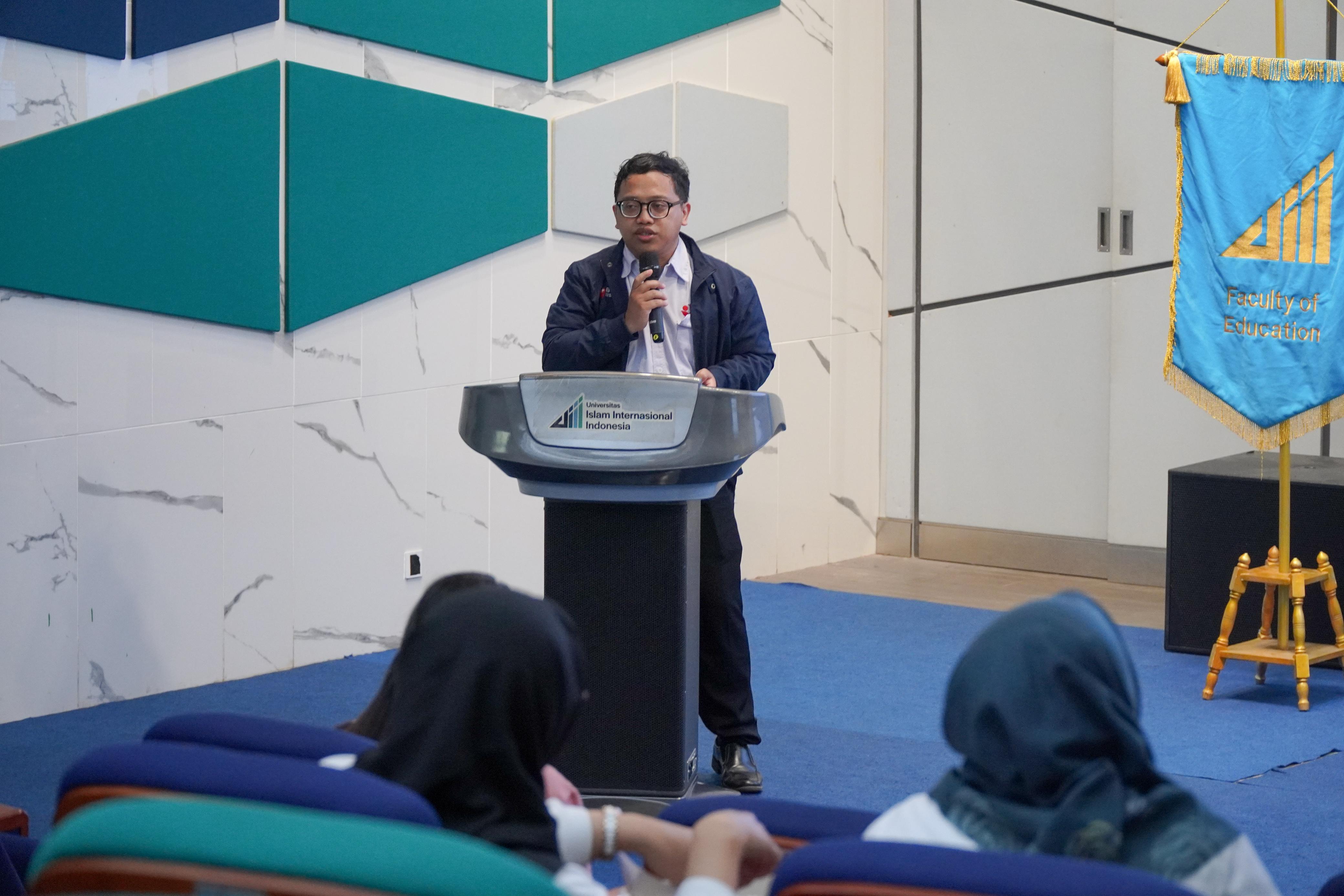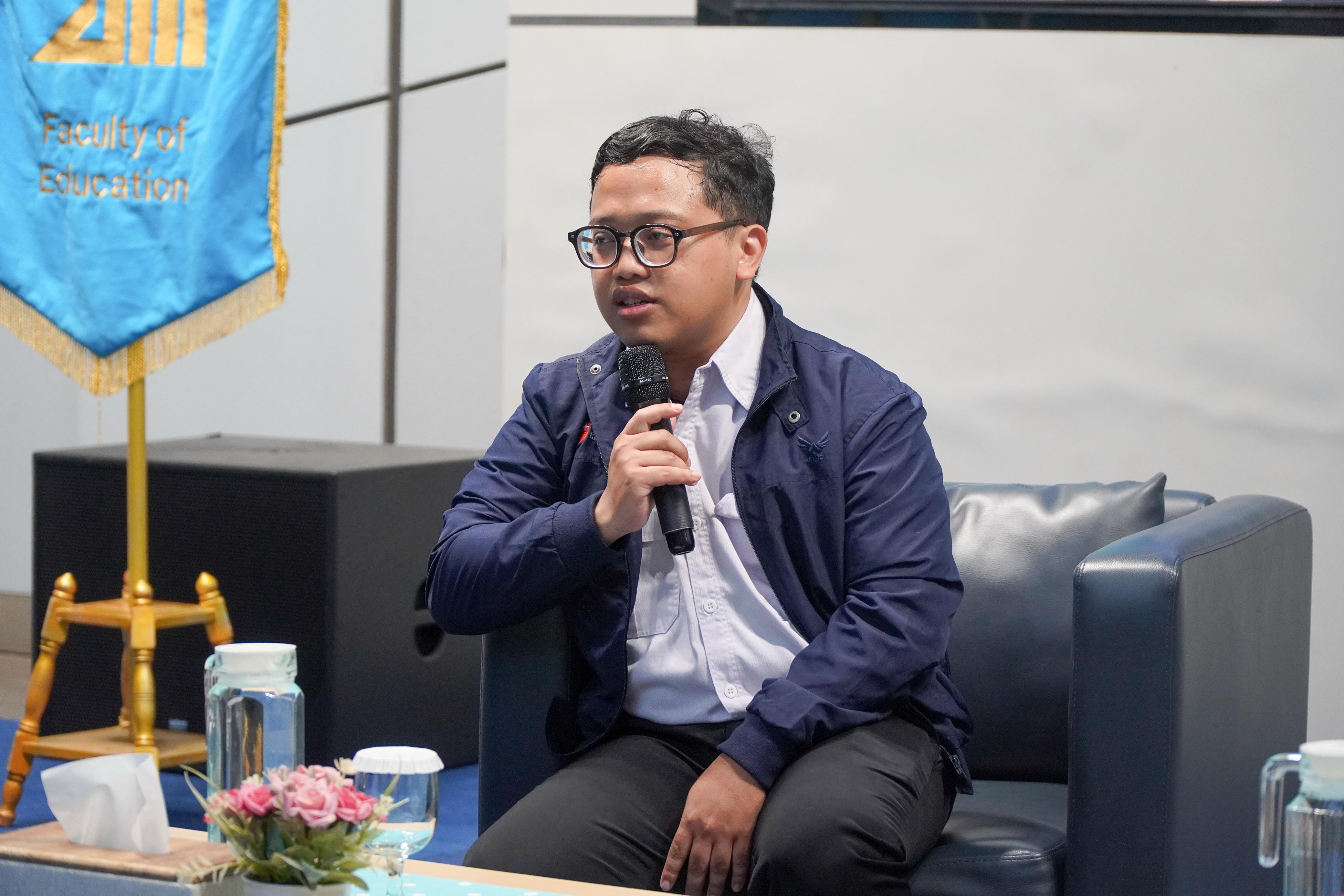More From News
Making Space for Prayer: How the State Shows Up in Everyday Faith
February 6, 2026
August 13, 2025
Contributor: Supriyono | Editor: Dadi Darmadi | Photo: Virda Lalitya Umam

For many academics, the idea of using Artificial Intelligence in research still feels like stepping into uncharted territory. Concerns about authorship, originality, and academic integrity often dominate the discussion. But for Dr. Soeharto, Scholar in Residence at UIII’s Faculty of Education, the conversation has already shifted from whether to use AI (or not) to how to use it ethically and responsibly.
Besides being Scholar in Residence at UIII’s Faculty of Educatio, Dr. Soeharto is also a researcher at Indonesia’s National Research and Innovation Agency (BRIN). He has published papers in leading academic journals, some of which were developed with the assistance of AI. Speaking to students and the academic community at LunchTalk #43 on July 22, 2025, he emphasized that before integrating AI into scientific writing, scholars must first understand the relevant guidelines and be transparent about their use.
“When you use AI in scientific writing, the first thing you need to know is the guideline and the ethics,” he explained. “You have to be honest about which parts of your work use AI, which parts you can improve with AI, and which parts require input from other experts. Disclosing your AI use is an important academic integrity practice.”

Referencing Springer and Elsevier guidelines on how to use AI ethically, Dr. Soeharto noted that avoiding AI entirely in today’s research landscape is unrealistic. Instead, he encouraged scholars to embrace AI as a partner that can accelerate their work. “For academic work, don’t forget to disclose any AI-related assistance. We cannot avoid AI in scientific writing. It’s better to embrace it and use it as a partner to fasten our work,” he said.
Addressing concerns some scholars have about AI, particularly issues of authorship and originality, Dr. Soeharto offered reassurance. “As humans, we make mistakes and learn from experience. If you lack certain experiences, you might need a partner. AI can help you. But you must use AI ethically, without becoming 100% dependent on it. The main actor in research is still you; AI is just a tool to help you work faster.”

As UIII continues to nurture a research culture grounded in integrity and global engagement, discussions like this LunchTalk serve as vital reminders that technology should strengthen, not compromise, scholarly values. By equipping its academic community with the knowledge to use AI responsibly, UIII reaffirms its commitment to producing research that is both innovative and ethical — ensuring that, in an era of rapid technological change, its scholars remain leaders in both integrity and impact.
Universitas Islam Internasional Indonesia